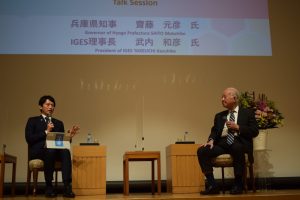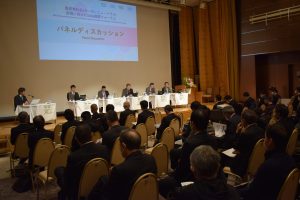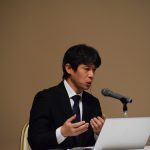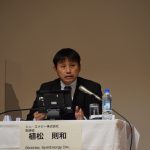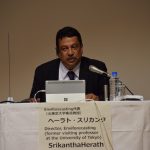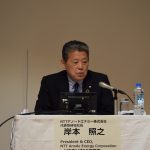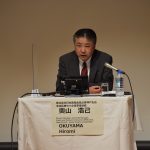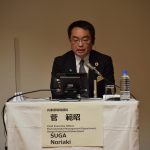23 December 2022, Kobe, Hyogo – APN, in collaboration with the Hyogo Prefectural Government and IGES, held a forum titled “SDGs International Forum for Achieving Carbon Neutrality and Realising a Decarbonised Society”. The forum was held at Lasse Hall in Kobe and online, with Japanese and English simultaneous interpretation, where approximately 320 people attended from Japan and abroad (approximately 70 participants in person and approximately 250 participants online).
Carbon neutrality and SDGs that aim to realise a sustainable society are common goals of the world. It is necessary to share the principles of SDGs and deepen the awareness of regional efforts to achieve carbon neutrality among the residents of Hyogo Prefecture and business operators by exchanging advanced initiatives and knowledge in various fields. The forum was held on the theme of “Regional Efforts Leading the World to the Realisation of a Decarbonised Society – Creation of a Regional Circular and Ecological Sphere (Regional-CES) (Local SDGs) through Local Production and Consumption of Energy”.
Mr Motohiko Saito, Governor of Hyogo Prefecture, gave opening remarks by introducing the plan to: use the Expo 2025 Osaka, Kansai, Japan, as an opportunity to share in Japan and abroad the efforts of Hyogo Prefecture on SDGs; expand the “Hyogo Field Pavillion” in all areas of the prefecture; seek to solve social challenges and promote regional economies by achieving SDGs, which all leads to increasing the brand value of Hyogo Prefecture. Additionally, to accommodate global challenges such as climate change and decarbonisation, Mr Saito indicated that Hyogo Prefecture would proceed with the demonstration experiment to transport hydrogen at Kobe Port and establish a carbon-neutral port in the Harima coastal area.
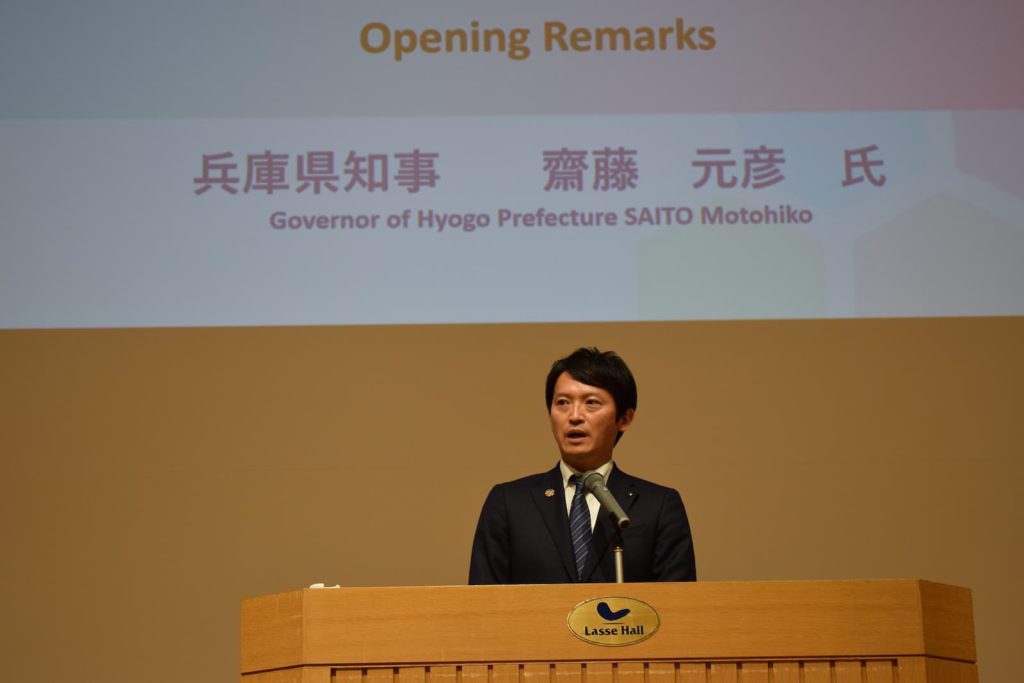
Mr Motohiko Saito, Governor of Hyogo Prefecture
In the first part of the forum, Prof. Kazuhiko Takeuchi, President of IGES, gave a keynote speech titled “Concept of a Regional Circular and Ecological Sphere (Regional-CES)(Local SDGs) Utilising the SDGs”. Prof. Takeuchi explained that Regional-CES is a concept that captures SDGs comprehensively and is an approach that aims to advance SDGs at the local level. Additionally, Prof. Takeuchi indicated that considering carbon-neutral societies based on Regional-CES will contribute to enhancing local economies and livelihoods, and that the “Hokesetsu Satoyama Regional-CES” of which efforts are made by Hyogo Prefecture can become a pioneering model to realise Regional-CES.
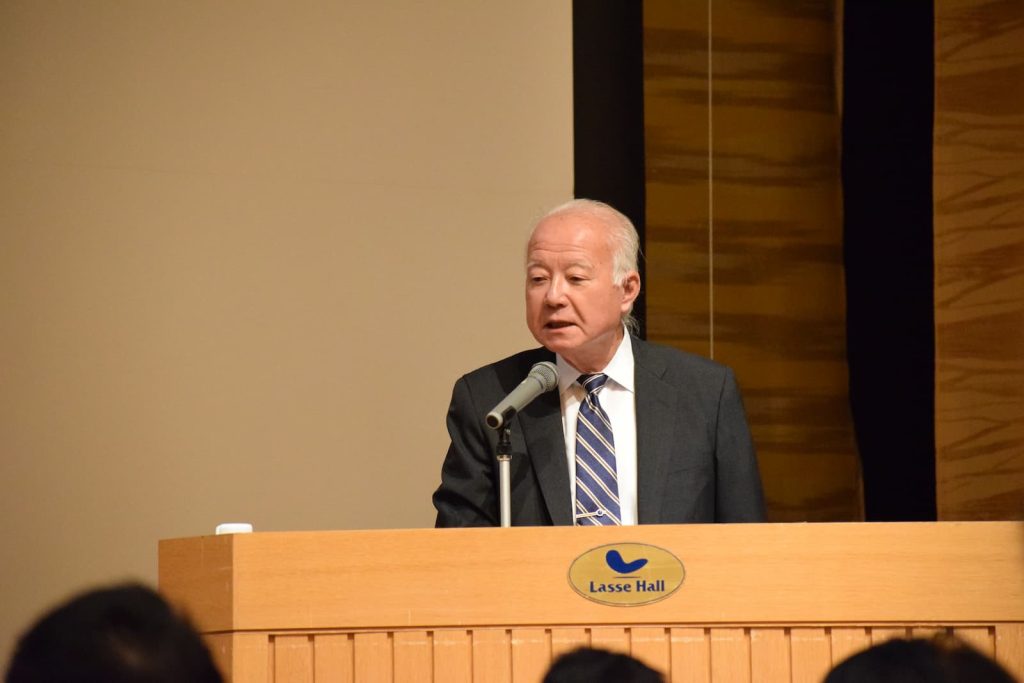
Prof. Kazuhiko Takeuchi, President of IGES
Subsequently, Mr Saito and Prof. Takeuchi discussed the theme “Hyogo Prefecture’s SDGs Efforts in the Environmental Field”. As a start, Mr Saito indicated that, as the prefecture’s efforts on SDGs, Hyogo Prefecture would develop a promotion system across all government offices, establish a platform with the business community and encourage the participation of generation Z. In response, Prof. Takeuchi suggested conducting a review on efforts made by Hyogo Prefecture on SDGs, of which Mr Saito agreed. Regarding Regional-CES (Local SDGs), Prof. Takeuchi indicated that the Satoyama in the Hokusetsu area of Hyogo Prefecture is not only an energy source of biomass but can also foster industries with high-added value by protecting the culture and environment that have been preserved in the area. In response, Mr Saito indicated that Hyogo Prefecture hopes to disseminate local efforts to the world by branding agricultural, forestry and fishery products produced by conserving biodiversity, such as the “Stork Natural Rice” in Toyooka City, which became a model of efforts made in Sado City, Niigata Prefecture.
In the second part of the forum, a panel discussion was held among five panellists from different fields working towards realising a carbon-neutral society, i.e. energy, the influence of climate change, digital, finance and government. Facilitated by a coordinator, the discussion was held on the theme “Initiatives to Create a Regional Circular and Ecological Sphere (Regional-CES) (Local SDGs)”, where panellists shared information on advanced approaches and challenges in their fields, including regional merits and challenges in establishing regional energy companies, developing a new mechanism to localise global knowledge, energy management system using information and communication technology (ICT), feedback on a loan program developed in cooperation with Hyogo Prefecture, and challenges in expanding regional efforts to introduce renewable energy. The discussion was followed by a Q & A where participants exchanged information on using digital technology to save energy, challenges and possibilities of biomass, and activities to increase a sense of crisis among prefectural residents.
Programme Director, Kansai Research Centre of IGES
Director, SymEnergy Inc.
Director, Enviforecasting (former visiting professor at the University of Tokyo)
President & CEO, NTT Anode Energy Corporation
Branch Manager and Chief Manager, Small and Medium Enterprise (SME) Unit, Kobe Branch, Japan Finance Corporation
Chief Executive Officer, Environmental Management Department, Hyogo Prefectural Government
Lastly, Mr Ryuji Tomisaka, Director of the APN Secretariat, made closing remarks by indicating his hope that the participants of today’s forum were inspired by hints from advanced efforts and knowledge introduced from various fields, and to connect those inspirations to action.
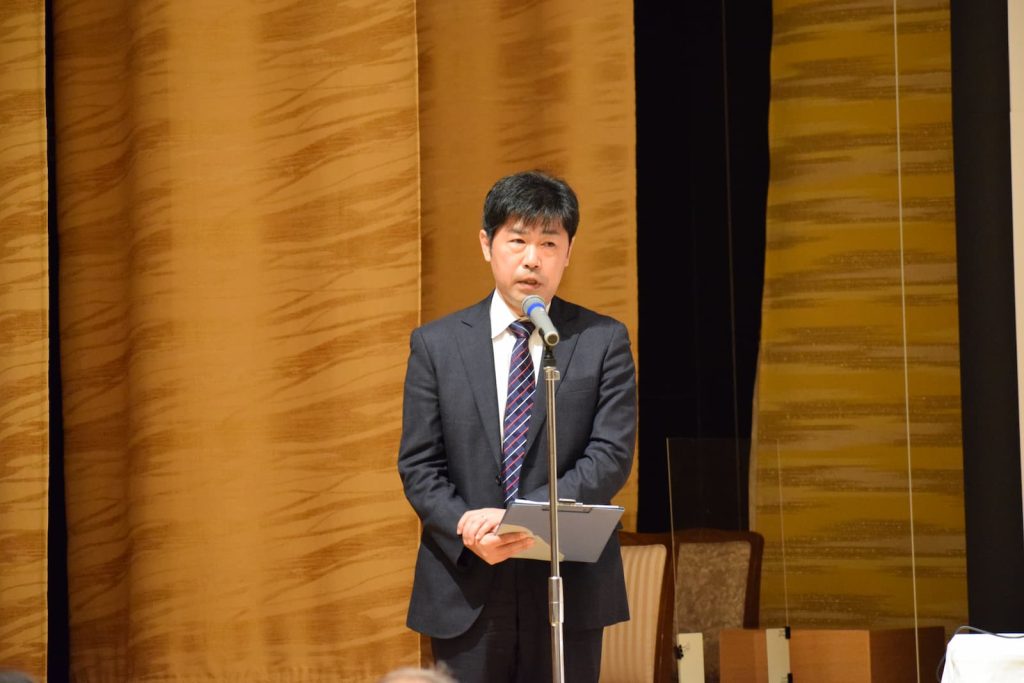
Director of the APN Secretariat
After the forum, a survey was conducted. Twenty-one per cent of the participants responded excellent and 66 per cent good, indicating that in total, 87 per cent of the participants were satisfied with the forum. Additionally, participants provided comments such as: the keynote speech “enhanced the understanding that efforts on SDGs lead to the development of Regional-CES”; the discussion between Mr Saito and Prof. Takeuchi “led to the understanding that advanced efforts made by Hyogo Prefecture are referred to by other regions, and that has further possibilities”; and the panel discussion “talked about cutting edge efforts made by different fields in a balanced way”.
APN will continue to make efforts to deepen the understanding of environmental issues with the residents of Hyogo Prefecture by collaborating with the Hyogo Prefectural Government, research institutions and other institutions concerned.
To see the programme of the event, please click here.
